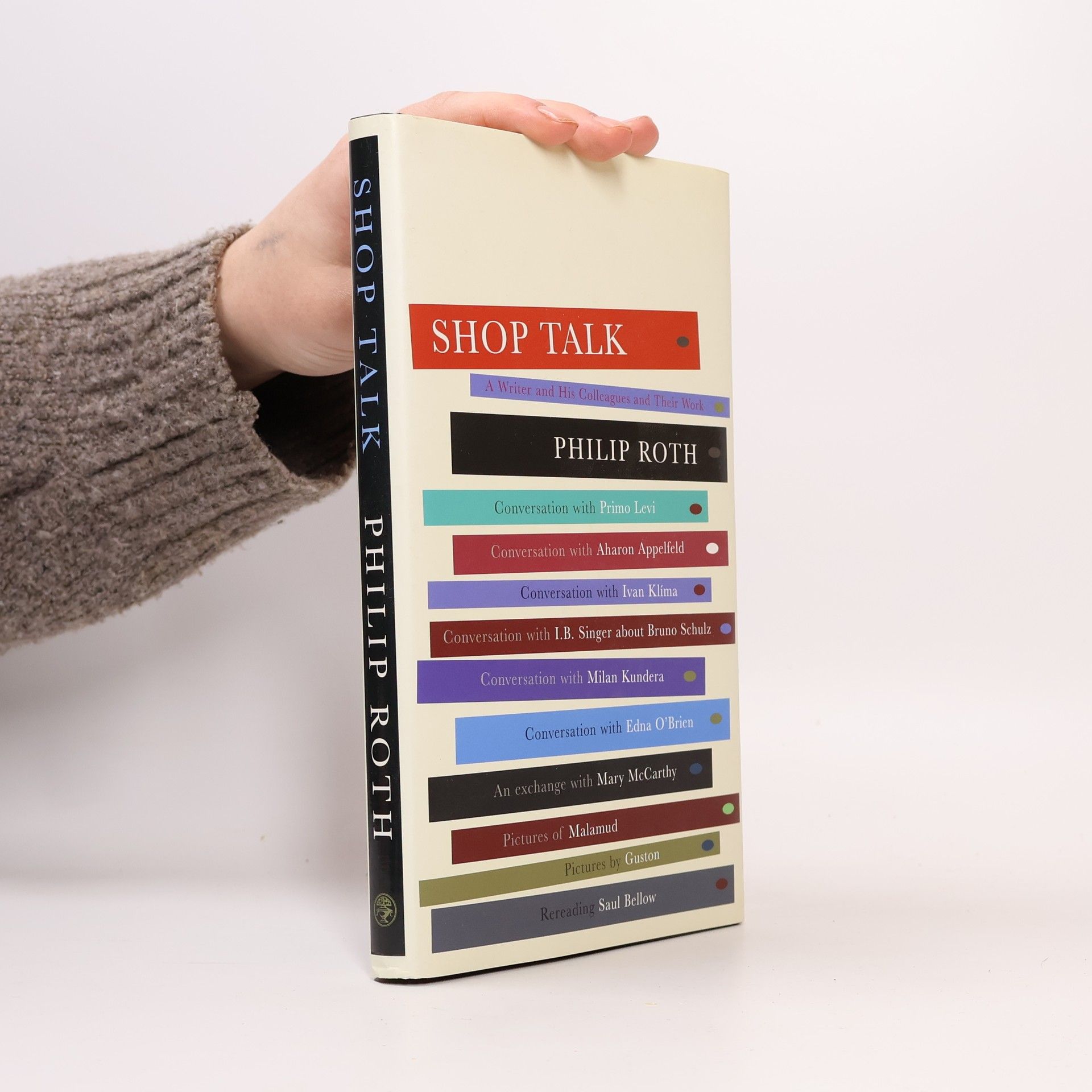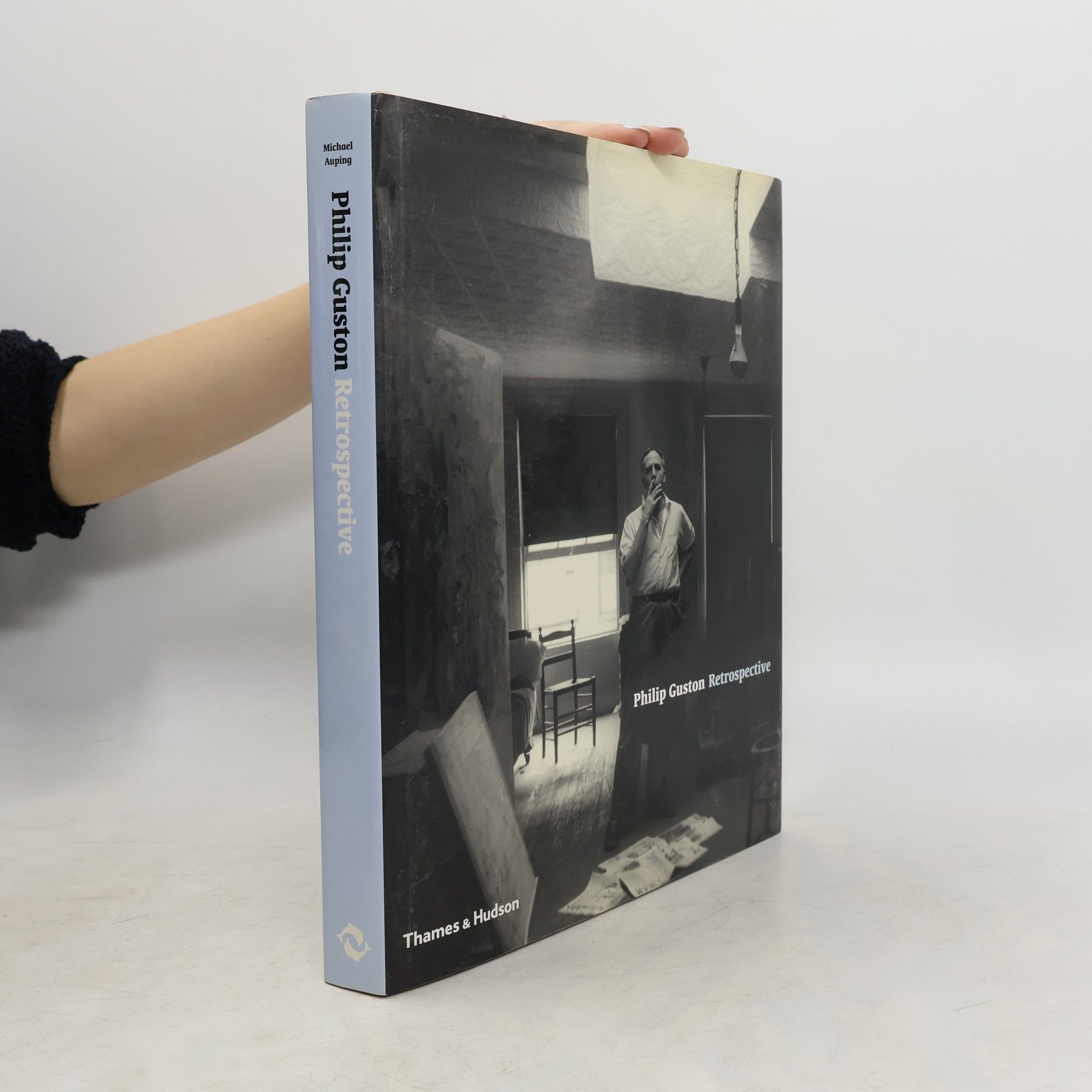Illuminating reflections on painting and drawing from one of the most revered artists of the twentieth century'Thank God for yellow ochre, cadmium red medium, and permanent green light'How does a painter see the world? Philip Guston, one of the most influential artists of the twentieth century, spoke about art with unparalleled candour and commitment. Touching on work from across his career as well as that of his fellow artists and Renaissance heroes, this selection of his writings, talks and interviews draws together some of his most incisive reflections on iconography and abstraction, metaphysics and mysticism, and, above all, the nature of painting and drawing.
Philip Guston Book order (chronological)
Philip Guston was a pivotal figure in the New York School, contributing to the shift from abstract expressionism to neo-expressionism in the late 1960s. Abandoning 'pure abstraction,' Guston explored new expressive territory through his distinctive, cartoonish renderings of personal symbols and objects. His work delves into the tension between the visible and the abstract, offering a unique perspective on 20th-century art.






Philip Guston Now
- 280 pages
- 10 hours of reading
"The first American retrospective of artist Philip Guston's (1913-1980) career in over 15 years. Scholarly essays trace the influences, interests, and evolution of this singular force in modern and contemporary art--including a close look at the 1960s and 1970s, when Guston abandoned abstraction, returning to the figure and to current history but with a personal voice, by turns comic and apocalyptic, that resonates today more than ever"--.
Philip Guston (1913 – 1980), one of the most important American artists of the twentieth century, was continually on the lookout for opportunities to engage with literature. Close collaborations with writers, including William Corbett, Bill Berkson, and Clark Coolidge, resulted in numerous book illustrations and cover images. In his poem-pictures, Guston turned to creating interactions of texts and drawings. This book, which includes an essay by Bill Berkson, presents a fascinating symbiosis of word and image.
Philip Guston, prints
- 135 pages
- 5 hours of reading
Der hochwertige Bildband zeigt erstmals das gesamte druckgrafische Werk Philip Gustons, eines der bedeutendsten amerikanischen Künstler des 20. Jahrhunderts. Als er sich zu Beginn der Sechzigerjahre dem Medium der Lithografie zuwandte, galt er als einer der maßgeblichen Protagonisten des Abstrakten Expressionismus in Amerika. Schon zu dieser Zeit kündigte sich in seinem Werk jener Wandel an, der zu den späteren gegenstandsbezogenen Arbeiten führen sollte, die im letzten Jahrzehnt seines Schaffens dominierten. Einfache Dinge des Alltags, die Uhren, die Schuhe und Bücher, die Zigaretten und Aschenbecher und gelegentlich seine geliebten Sandwiches und Kirschen - all diese Dinge aus der Welt des Privaten erweckt Guston im weichen Duktus der Lithokreide zu einzigartigem Leben. Ausstellung vom 26. März bis 28. Juni 2015. Staatliche Graphische Sammlung München in der Pinakothek der Moderne.
Was ist Kunst? Was trennt Kunst von Nicht-Kunst? Wo verläuft die Grenze zwischen Inspiration und Langeweile? Diese Fragen, die der amerikanische Künstler Philip Guston (1913–1980) ein Leben lang verfolgte, sind von existenzieller Dringlichkeit. Guston stellte diese Fragen in seiner Malerei, in Texten, Vorlesungen und im Austausch mit Kollegen und Freunden, darunter Philip Roth und David Sylvester. In Deutschland ist Guston noch zu wenig bekannt, weshalb erstmals einige seiner dichten Schriften auf Deutsch veröffentlicht werden, ergänzt durch ein bedeutendes Gespräch mit Sylvester aus dem Jahr 1960. Selten wurde im Kunstbereich so intensiv nach der 'Wahrheit' und dem Sinn von Kunst gefragt. Ein erhellendes Nachwort von Dieter Schwarz, einem langjährigen Bewunderer Gustons, sowie zahlreiche Abbildungen seiner Werke runden den Band ab. Diese Texte bieten jenen, die in der zeitgenössischen Kunst oft eine gewisse Oberflächlichkeit empfinden, ein wertvolles Gegengewicht. Auch unmögliche Fragen sind bedeutend und können neue Perspektiven eröffnen.
This book, the most comprehensive survey of Guston's art to date, is published on the occasion of a major international exhibition. It brings together for the first time the different bodies of the artist's work, exposing the connective threads between each of his developmental stages. In-depth essays by a noted group of critics and art historians explore Guston's early influences and the emergence of symbols that resurfaced and played prominent roles in his late work. They provide insight into Guston's philosophy regarding abstraction, his role within its development, and the social and art historical context from which his so-called "Klan" paintings emerged. In addition, one of Guston's own essays on art and innovation is reprinted.Also included are selections of drawings that act as both prelude and restatement at each stage of the artist's career; a number of works from Guston's Estate that have never been exhibited before and that shed new light on his development; an extensive illustrated chronology of the artist's life and career; and a comprehensive bibliography.
In Philip Roth's intimate intellectual encounters with an international and diverse cast of writers, they explore the importance of region, politics and history in their work and trace the imaginative path by which a writer's highly individualized art is informed by the wider conditions of life. With Primo Levi, Roth discusses the stubborn core of rationality that helped the Italian chemist-writer survive the demented laboratory of Auschwitz. With Milan Kundera, he analyzes the mix of politics and sexuality that made him the most subversive writer in communist Czechoslovakia. With Edna O'Brien, he explores the circumstances that have forced generations of Irish writers into exile. Elsewhere Roth offers appreciative portraits of two friends--the writer Bernard Malamud and the painter Philip Guston--at the end of their careers, and gives us a masterful assessment of the work of Saul Bellow. Intimate, charming, and crackling with ideas about the interplay between imagination and the writer's historical situation, <b>Shop Talk</b> is a literary symposium of the highest level, presided over by America's foremost novelist.
Philip Guston, Tableaux, Paintings 1947 - 1979
- 144 pages
- 6 hours of reading
Philip Guston
- 144 pages
- 6 hours of reading
Focusing on Philip Guston's mature production in abstraction and his later figuration, this book argues for Guston as a consistent artist whose generic shift in the late 60s, from Monet-like abstract hatchings to the cartoonish forms of his final decade and a half, reminded artists everywhere that courage is what it's all about. Here, well-known experts on Philip Guston's oeuvre such as Michael Auping and Christoph Schreier discuss the scope of Guston's sizeable body of work.

